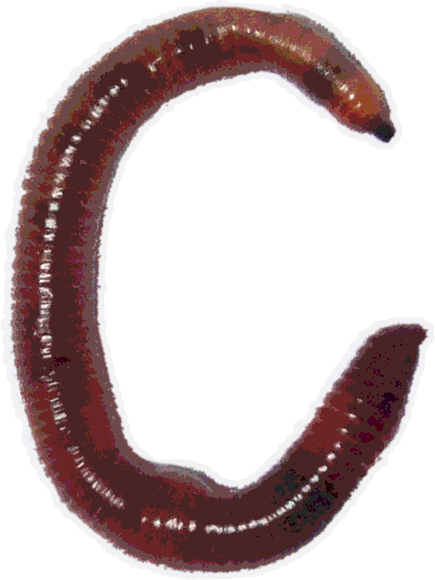Our projects include:
- Community compost toilet building & maintenance
- Soil care and composting
- Soil testing
- Food growing support
- Waste/ resource management
- Creative nature connection
- Collaborative arts
- Community organising
- Co-design and building of community growing infrastructures
We like to explore these things on the ground and solve problems collaboratively through co-design, making stuff, building relationships & networks, doing research, running workshops, and programming events. For more information about our work, check out our b(l)og, publications, projects & events.
~ ~ ~
Below is a manifesto that we've been working on together alongside participating in Navigate's Living Systems for Thriving Groups course. It is a work in progress, and will be updated periodically.
"we want the soil back!"*
A Manifesto (in Process)
Humans are part of the soil food web: with our fellow earthlings we have the capacity to shred, turn, digest, build, make, break down, terraform and care for soil and organic matter. Together we are soil, we are matter passing through.
As a workers’ coop, we build compost piles, accessible toilets and recycling infrastructures which activate social and material change in the microcosms in which we work. We believe that through shifting intentions, practices and stories around how we manage and relate to our “waste”, we can (in small ways) redistribute power and resource flows; increase cooperation; and build alternatives together. We aspire to be “radical plumbers”, which is about making connections that, grow, decompose, redirect, challenge, transform and create new openings.
We take inspiration from compost, applying it as a method, structure, material, ethic and resource for collaborating as humans, and across species in the ecosystems we are part of. Some of these inspirations include:
Slowness - the long, hot ferment of a compost pile - Recognising the different temporalities, rhythms and scales that we need to work at, and actively resourcing ourselves to work at a pace that is comfortable for each of us. Our ethic of slowness allows us to build trust and care, making time to gather, & reflect on our work, methods, values and decisions. For us, slowness supports accessibility and the long term sustainability of our work together.
Interdependence and skillsharing - under and above ground networks living in symbiosis - A key part of our practice is about building and facilitating healthy relationships and exchanges with each other, our environments, the communities we work in, other collectives, networks and individuals. This includes the sharing of space, materials, knowledge, resources and a recognition of the ways we are all interconnected. Our organisational systems and structures are the result of shared learning from other coops, and organisations we have been inspired by e.g. Navigate, the Community Food Growers’ Network, Guerilla Translation, Concrete Action and Principle Six (amongst others).
Co-design and cooperation - we are multitudes, making together ~ We are passionate about practicing co-design, co-creation and cooperation in all our work, from developing organisational systems, to decision making, writing and building stuff together. Based on our collective learning and research we are committed to collaborating in an accessible, open, anti-hierarchical and transparent way, with lots of space for ongoing reflection, learning, digesting, feedback and growth. We value the energy and ideas of members, associates and collaborators which nourishes us and our work.
Grounding in complexity, diversity and intersectionality - These dynamics are essential to all living systems - We each come to this work as complex and full beings, with different experiences of power, privilege, and marginality. We seek to acknowledge this in ourselves and others, particularly attending to the ways in which intersections of gender, race, disability, sexuality, class, religious and cultural background, impact the ways in which we relate to and access land, resources and power, in unequal and unjust ways. Our response to this is grounded in a commitment to racial justice, disability justice, land justice, environmental justice and soil justice, holding ourselves and others to account ongoingly. We each have different needs in this work, and our systems seek to respond to this complexity, making resources available which meet diverse needs. We come with a willingness to engage in difficult conversations, to hear when we don’t get it right, and keep working to do better.
Centering care, joy, pleasure & nourishment in our work - have you ever watched a nematode dance? We get joy from making and co-authoring together, prioritising playfulness, creativity, friendship, and experimentation; making meetings pleasurable, supportive and something to look forward to. Using all our senses we share experiences of awe and wonder from working with soil & other ecologies; celebrating the unpredictability and delight that comes from working with natural materials and processes.
Resilient and robust systems and processes - A healthy composting system creates optimal conditions (oxygen, moisture, temperature, C:N ratios) for composting to take place - Likewise we are working to create good systems, and containers which hold our work and processes in a healthy way. These include; decision making; resource flows; information flows; communication; conflict management, support & care, and sharing feedback. We strongly believe that taking time to establish these systems will support our work to be more effective in the long term.
We are committed to grounding what we do in a desire for deep change, emergence, transformative politics and justice - the compost pile takes what no longer serves us and thoroughly, fundamentally changes it into something which has the potential to nourish and heal. This is a kind of alchemy.
In practice this means opening up multiple 'entry points' and everyday ways of connecting to the soil, through poetry, ecology, microbiology, art, storytelling, building, cleaning, zining, carpentry, caretaking, food growing, herbal medicine, and conversation. It also means properly resourcing our labour, and the labour we support others to do. It means practicing care, accountability and justice as we go about our work and lives together.
*The title of our manifesto is inspired by Linden McMahon’s poem [Speculative Fiction]
Speculative Fiction from Compost Mentis Coop on Vimeo.
